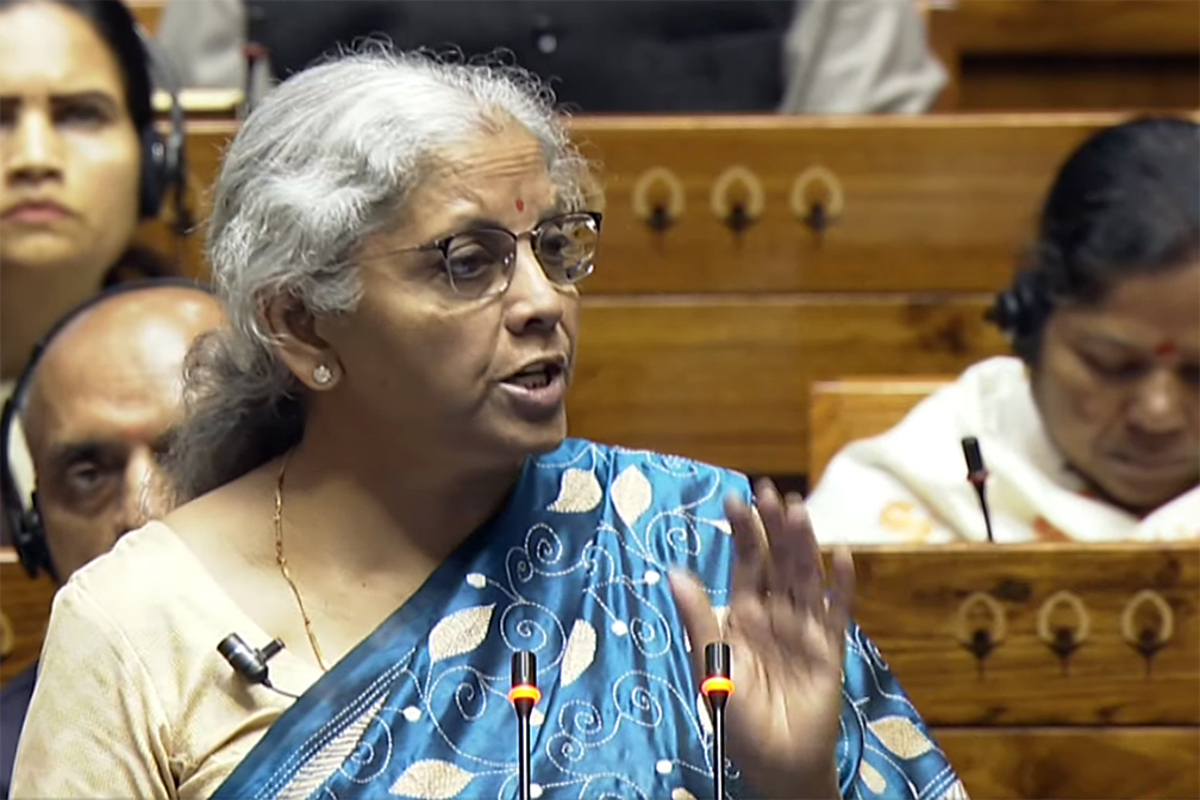The Economic Survey 2023-24 tabled by Union Finance Minister Nirmala Sitharaman in Parliament on Monday said the Indian economy is on a strong wicket and stable footing, demonstrating resilience in the face of geopolitical challenges.
“High economic growth in FY24 came on the heels of growth rates of 9.7% and 7%, in the previous two financial years.”
The Survey said that the headline inflation rate is largely under control, although the inflation rate of some specific food items is elevated. The trade deficit was lower in FY24 than in FY23, and the current account deficit for the year is around 0.7% of GDP.
However, it said that the Indian economy needs to generate an average of nearly 78.5 lakh jobs annually until 2030 in the non-farm sector to cater to the rising workforce.
“For the recovery to be sustained, there has to be heavy lifting on the domestic front because the environment has become extraordinarily difficult to reach agreements on key global issues such as trade, investment and climate,” the Survey read.
“Public investment has sustained capital formation in the last several years even as the private sector shed its balance sheet blues and began investing in FY22. Now, it has to receive the baton from the public sector and sustain the investment momentum in the economy. The signs are encouraging,” said the Survey.
The Economic Survey 2023-24 said that the inflationary pressures stoked by global troubles, supply chain disruptions, and vagaries of monsoons have been deftly managed by administrative and monetary policy responses. As a result, after averaging 6.7% in FY23, retail inflation declined to 5.4% in FY24.
It said the decrease in retail inflation in FY24 was driven by a fall in core inflation – both goods and services. Core services inflation eased to a nine-year low in FY24; at the same time, core goods inflation also declined to a four-year low.
Food inflation has been a global concern over the past two years. Within India, the agriculture sector faced challenges due to extreme weather events, depleted reservoirs, and crop damage, which impacted farm output and food prices. Consequently, food inflation stood at 6.6 per cent in FY23 and increased to 7.5 per cent in FY24, according to the Survey.
Going forward, the RBI projects inflation to fall to 4.5 per cent in FY25 and 4.1 per cent in FY26, assuming normal monsoon and no external or policy shocks. Similarly, the IMF forecasts inflation of 4.6 per cent in 2024 and 4.2 per cent in 2025 for India, it added.
The fiscal balances of the general government have improved progressively despite expansionary public investment. Tax compliance gains driven by procedural reforms, expenditure restraint, and increasing digitisation helped India achieve this fine balance,
The external balance has been pressured by subdued global demand for goods, but strong services exports largely counterbalanced this. As a result, CAD stood at 0.7% of the GDP during FY24, an improvement from the deficit of 2% of GDP in FY23.
“Against the global trend of widening fiscal deficit and increasing debt burden, India has remained on the course of fiscal consolidation. The favourable fiscal performance in 2023, emerged as the cornerstone of India’s macroeconomic stability,” the Economic Survey said.
It added that the fiscal deficit of the Union Government has been brought down from 6.4% of GDP in FY23 to 5.6% of GDP in FY24, according to provisional actuals (PA) data released by the Office of Controller General of Accounts (CGA).












